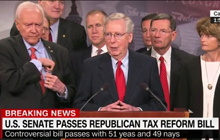Will he stay or will he go? The Kawhi Leonard saga

Ka'whi Canadian tax may not be so bad for Leonard, says Adam Scherer, CPA, CA
TORONTO, June 18, 2019 – Four bounces off the rim... and in! A thundering slam dunk over the presumptive NBA MVP. Nailing two free throws in the final 0.9 seconds — sealing the first ever NBA Championship for the Toronto Raptors. Kawhi Leonard had a basketball season for the ages. Traded to Toronto in the offseason, he delivered a dream season for his team and their fans. He won the hearts of Torontonians — and all Canadians.
Even as the championship glow (or hangover!) lingers, the big question that dogged Kawhi all season remains: will he re-sign with the Raptors, or will he head home to California and play for the Lakers or Clippers?
There are many financial reasons for him to stay. NBA rules allow the Raptors to offer him more money and more years than any other team. Based on recent salary cap projections, the Raptors can offer Kawhi U.S. $189.66M over five years (an average of approximately $38M/season). Other teams can "only" offer him $140.61M over four years (an average of $35M/season).
But, when it comes to free agents and the Raptors, the one theme that constantly comes up by media and fans alike is taxes. Jalen Rose, former Raptor and current broadcaster once said, "Why hasn't Toronto been a place that's attractive for free agents? Because you have to pay Uncle Sam and the Queen!"
 |
Adam Scherer, CPA, CA of Crowe Soberman LLP in Toronto. |
Would Canadian taxes eat up the additional salary that Toronto can offer?
Canadian tax rates are higher than in the United States, there's no denying it. But are they the deal-breaker the media makes us believe? Let's look at how athletes, like Kawhi, are taxed in Canada.
Kawhi is an employee of Maple Leaf Sports and Entertainment, working at their Toronto location, Scotiabank Arena. He gets a paycheque like any other Canadian employee. (His just has a lot more zeros!) The top tax rate for an employee residing in Ontario is a combined federal and provincial rate of 53.5 percent. So, on a salary of $38M, his taxes would be approximately $20.3M.
Compare that to a player living in Los Angeles. An employee of a California-based team will pay U.S. federal tax at a top rate of 37 percent and California state tax at a top rate of 13.3 percent, yielding a combined tax rate of 50.3 percent. So on those same earnings of $38M, he'd pay $19.1M in tax. But you've read enough of our articles by now to know that's not the end of the story!
The U.S. has very expensive social security taxes—a maximum of approximately $8,000, compared to $2,700 (USD) in Canada for Canada Pension Plan and employment insurance. In the U.S., a Medicare tax of 2.35 percent is also added to your paycheque for another $893,000. (Medicare is an often-overlooked factor when it comes to comparing taxes for athletes on Canadian versus U.S. teams.) Now take another look: the difference is much more palatable –approximately $300,000—a difference of less than 1 percent!
Let's now look at Kawhi's situation specifically. If he chooses to re-sign with the Raptors, Kawhi would likely remain a tax resident of the U.S. As such, he'd be taxed there on his entire salary. And yes, he'd pay the CRA as well—but they can only tax employment earnings for days worked in Canada. Using the 2018 calendar year as an example, the Raptors calculated that their players spent 66 percent of their working days in Canada. Thus, only two thirds of his salary would be taxable in Canada. Credits are available in the U.S. for taxes paid in Canada, meaning effectively that a player pays the higher of either the Canadian tax rate or the U.S. tax rate on his working days in Canada.
But wait... there's more!
NBA rules also allow a player to earn up to 15 percent of his salary in the form of a signing bonus. As we've noted before, signing bonuses get unique treatment under the Canada-U.S. income tax treaty. Pursuant to the treaty, Canada can only tax signing bonuses for an athlete like Kawhi at a maximum rate of 15 percent--an amount well lower than his U.S. tax rate. Thus, with careful contract structuring, it's possible Kawhi could have $27M per year taxed in Canada at an effective rate of 45.3 percent, for a total tax obligation of $12.2M. Much lower than in California! While U.S. foreign tax credit computations are complicated and beyond the scope of this article, it is not unreasonable to say that with thoughtful tax planning, Kawhi could structure his affairs in Canada so that he's no worse off tax-wise playing for the Raptors than for a California team.
With tax out of the equation, maybe he'd take the higher salary the Raptors can pay him and stay a few more seasons. Combine that, future championship runs, a cost of living index 10 percent lower in Toronto than Los Angeles, free meals thanks to "Ka'wine and Dine," a free condo, AND the most excited, fun, loyal fans in the NBA, we really don't see any reason to sign anywhere else! (Just no one mention the weather!)








(0) Comments